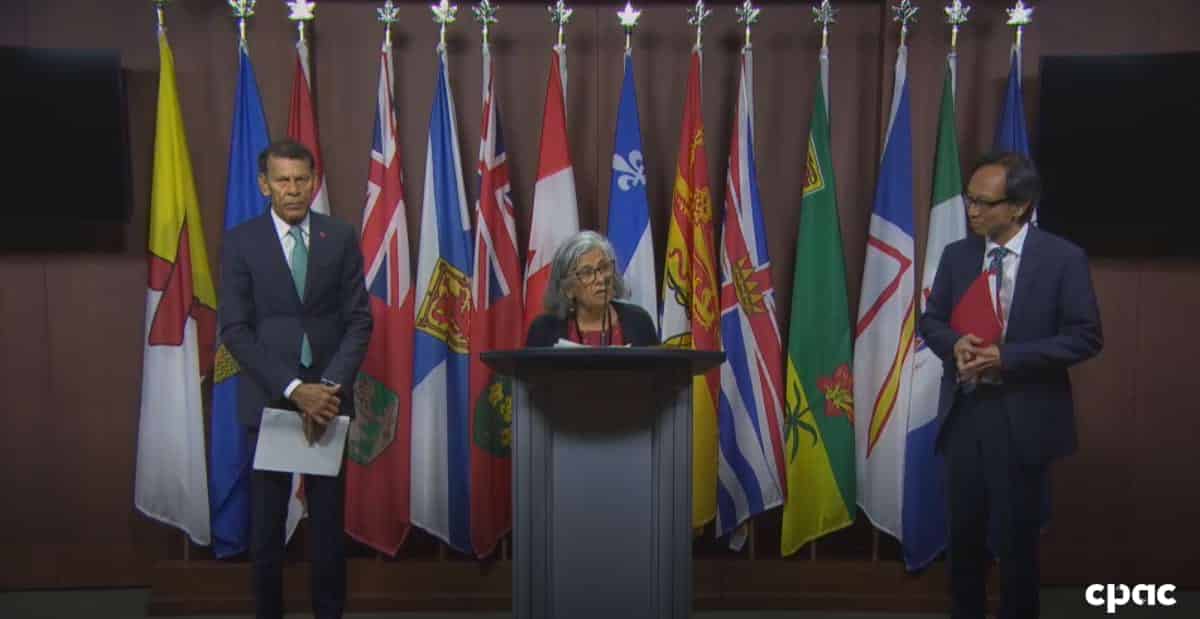Four members of the Canadian Senate published a report on September 20, outlining how to strengthen the integrity of the country’s international student program.
Although the report suggests that international students are beneficial to Canada’s economy, as well as its social and cultural landscape, there are also myriad integrity issues within Canada’s international student program. These include the following:
Educational agents: These actors, among other indiscretions, could direct international students towards programs that are not eligible for a Post-graduation work permit (PGWP), which means they may not be eligible to work and obtain permanent residency after graduation.
Note: Only Designated educational institutions (IDD) in Canada can welcome international students. However, not all programs offered by DLIs are eligible for the PTPD, which is highly coveted because it allows international students to gain professional work experience in Canada, which they can use to support their eligibility for residency permed.
Discover your options for studying in Canada
Accommodation: “40% of study permit holders live in unsuitable housing,” according to a June 2023 report from Statistics Canada. These students are subjected to “discriminatory rental advertisements and treatment from landlords, including verbal abuse, demands for exorbitant initial deposits…” [and] overcrowding.”
Immigration pathways for permanent residence: The Senate report suggests Canada perpetuates “an exaggerated sense of hope” among international students that they will be able to obtain permanent residency here after completing their studies. “While the Canadian government honestly highlights the immigration benefits of studying in Canada, perhaps it can do more to be upfront about the highly competitive nature of the permanent residence application process.”
To mitigate the above challenges, the report makes the following recommendations.
Federal, provincial and territorial recommendations
1. Conduct a national review of the financial viability of DLIs
Suggesting that Canada’s post-secondary education sector is too vulnerable due to its reliance on international students for funding, the report could negatively impact Canada if “downward changes in global trends of international students” are moving away from Canada or if there are “diplomatic conflicts” that are reducing international student enrollment in this country.
2. Introduce greater oversight over DLIs, including private colleges, to promote a better experience for international students
To ensure that DLIs across the country work enthusiastically and consistently to provide international students with a “positive on- and off-campus experience,” this report suggests that oversight of Canada’s educational institutions could have a positive impact about the life of international students in this country. Indeed, such oversight can result in student-friendly policies, such as requiring DLIs to demonstrate how they will help international students find housing and employment, resolve other institutional issues like mental health and more.
The Senate report adds that “DLIs that fail to meet standards should risk losing their ability to accommodate additional international students.”
3. Improve awareness of international students enrolled in programs not eligible for PTPD
As noted in the section on educational agents above, enrolling in non-PTPD eligible programs is a major issue for international students. To this end, this report argues that all levels of the Canadian government can do a better job of informing students about which programs are and are not eligible for the PTPD. This is important because there is a “strong motivation among international students to obtain PTPD and permanent residency” after graduation.
4. Offer of accommodation for international students
This recommendation, which requires an initial discussion on the ability of educational institutions to meet their financial needs outside of enrolling international students, calls on the federal government to take certain steps to ensure adequate housing for international students, including :
- Collect federal data on student housing; crucial for making informed choices
- As part of the National Housing Strategy, create a dedicated funding stream for post-secondary institutions to create affordable housing options for students.
5. Improve international students’ awareness of their legal rights and avenues for redress
The report’s authors suggest that DLIs, as the first point of contact for many international students in this country, and the Canadian government both need to do a better job of informing international students of their housing rights, d employment and sexuality. abuse. Since many of these indiscretions occur and go unreported due to a lack of understanding, informing students of their rights and what they can do if they experience these issues will help to mitigate these problems in the future.
6. National political strategy on temporary residence in PR sectors after studies in Canada
This type of national strategy, when expressed clearly, can help limit disappointment among international students while also informing them of the realities of permanent residence (PR) in Canada, namely that there are a much more limited number of PR places in Canada that students could have. informed during the initial planning of their studies and life in Canada.
7. National policy strategy on settlement assistance for international students
Like the other national policy suggestion, this report highlights several benefits of adopting the same approach to settlement assistance for international students. These include:
- Providing international students with better care and a more positive overall experience
- Fight against the abuses highlighted above in the report
- Providing a means to better educate and prepare international students for life in Canada as a permanent resident
Federal recommendations
8. Consider creating a national language standard for DLI admissions criteria
Standardizing how the DLI communicates admissions criteria would eliminate confusion among international students and ensure greater success – both in university and beyond – when they come to Canada. Following the example of Immigration, Refugees and Citizenship Canada (IRCC) regarding the approval of permanent residence by means of a standard Canadian language benchmark (CLB), a standard reference for international student admission criteria could be beneficial for all parties.
9. Strengthen the LOA verification process
This report recommends that IRCC strengthen the Letter of Admission (LOA) verification process, as this would help “strengthen the integrity of the international student program and also save trouble and resources in the long term”; such as IRCC which must later devote time and other resources to legal proceedings and deportations. The report adds that this process can be accelerated through the use of existing technologies, such as those already available in the private sector.
10. Reform IRPA and IRPR to better regulate the conduct of educational agents and introduce other federal oversight measures
A new look at Canada’s reform Immigration and Refugee Protection Act (LIPR) and the Immigration and Refugee Protection Regulations (IRPR) can help introduce policies at the federal level to regulate the conduct of overseas education agents and post-secondary institutions who take advantage of unsuspecting and desperate students. As an example, this report suggests that “more severe sanctions, such as fines and revocation of IDD status, should be considered for those who violate” the new policy measures after the reform of the IRPA and the RIPR of the Canada.
Provincial and territorial recommendations
11. Explore More International Student Tuition Fee Regulations
According to the report, strengthening regulation, in this case, includes considerations such as lowering the cap on tuition fee increases for international students – a move that coincides with the report’s first recommendation, as this cannot be achieved only by relying less on international student tuition fees to cover DLI operational expenses.
12. Introduce more regulations on educational agents and sanctions for DLIs who profit from unscrupulous agent behavior
Along the same lines as Recommendation 10, other provinces and territories should follow the lead of regions like Manitoba in better regulating overseas educational agents and international student recruiters. Manitoba has a series of measures outlined in its International Education Act that govern behavior and sanctions imposed on parties who demonstrate poor behavior, including fines and a code of conduct that can serve as a teaching point for other provinces and territories of Canada.
Discover your options for studying in Canada
Join our free newsletter. Get Canada’s top immigration stories delivered to your inbox.

“Explorer. Food advocate. Analyst. Freelance bacon practitioner. Future teen idol. Proud pop culture expert.”







